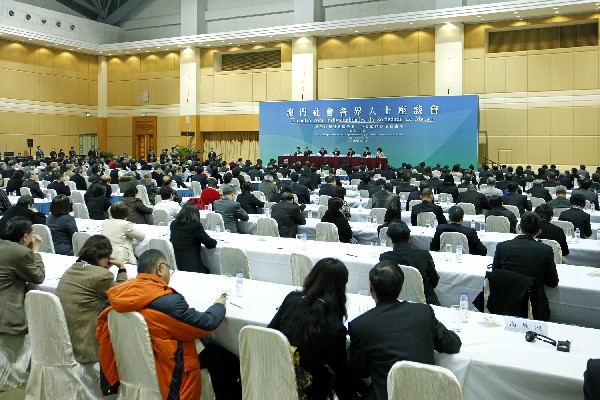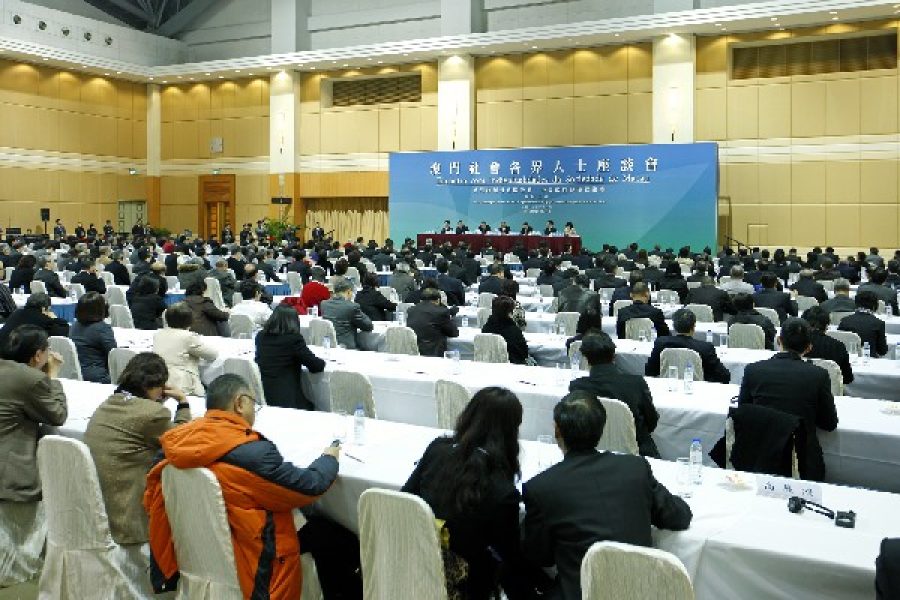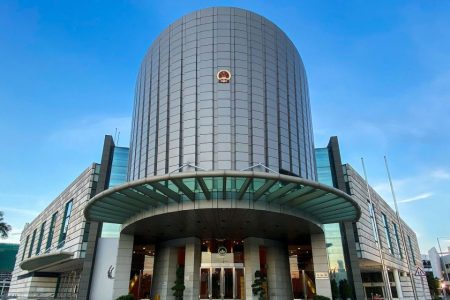National People Congress (NPC) Standing Committee Vice Secretary-General Qiao Xiaoyang said Thursday that “it cannot regulate the election of all members of the Macau Legislative Assembly [AL] through universal suffrage” regardless of how the method of electing the legislature in amended.
Qiao also said that the Macau Basic Law states that the majority of the members of the AL must be elected. He said that this was requested by the Portuguese government in the Sino-Portuguese Joint Declaration on the Question of Macau in 1987, adding that this was a consensus reached between the governments of China and Portugal at that time – because of which “universal suffrage” was never a choice enshrined the Macau Basic Law – unlike in its Hong Kong counterpart.
According to The Macau Post Daily, Qiao made the remarks in a speech during a two-hour seminar in the Macau Dome in Cotai about the city’s political development organised by the local government and the Liaison Office of the Central People’s Government in Macau.
Qiao gave his speech after listening to the opinions of six local civic leaders about the city’s development during the seminar.
One of the six was grassroots lawmaker Au Kam San, whose New Macau Association is calling for a “democratic” political system.
Qiao was quick to add there had been a discussion on whether the goal of universal suffrage should have been set for electing the chief executive during the drafting of the Macau Basic Law.
“There was an opinion [during the drafting of the Macau Basic Law] that universal suffrage for the chief executive had to be based on the real situation of [local] society, with the Basic Law stating that the chief executive will be selected by election or through consultations[held locally],” Qiao said, adding that “it does not bar Macau from choosing universal suffrage for electing its chief executive.”
He stressed that Macau was different to Hong Kong, with the Hong Kong Basic Law stating the ultimate goal in universal suffrage both for electing all members of the Legislative Council (LegCo) and the chief executive.
“This is absolutely not negligent [when the Macau Basic Law was drafted] but a consensus of society at that time [during the drafting of Macau Basic Law] that the methods stated in the Macau Basic Law for the election of the chief executive by an electoral committee and the formation of the legislature by directly and indirectly elected and officially appointed members should be implemented for a long period,” Qiao said.
Qiao also pointed out that any articles in the Macau Basic Law can be amended, but they “only can be amended appropriately, based on the real situation of Macau society at the respective time”.
He insisted there was no timetable to propose universal suffrage for the chief executive election as that would be beyond the law.
Addressing yesterday’s seminar, Au said in his speech that Macau should move forward to universal suffrage for the chief executive election, based on the principle of one-person, one-vote.
Au also said that more than half the lawmakers in the legislature should be elected directly in next year’s election.(macaunews)






